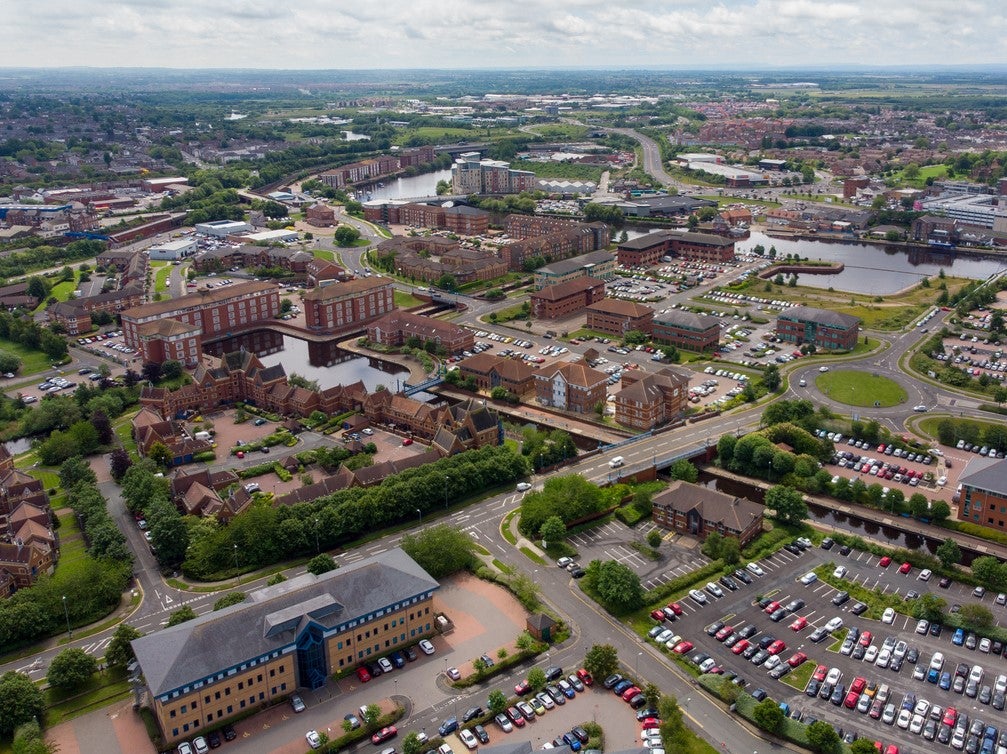‘Opposite of levelling up’: Cost of living crisis set to widen gap between north and south, research warns
Former red wall constituencies which switched allegiance from Labour to Conservatives at last election make up majority of areas set to be hit hardest

Your support helps us to tell the story
From reproductive rights to climate change to Big Tech, The Independent is on the ground when the story is developing. Whether it's investigating the financials of Elon Musk's pro-Trump PAC or producing our latest documentary, 'The A Word', which shines a light on the American women fighting for reproductive rights, we know how important it is to parse out the facts from the messaging.
At such a critical moment in US history, we need reporters on the ground. Your donation allows us to keep sending journalists to speak to both sides of the story.
The Independent is trusted by Americans across the entire political spectrum. And unlike many other quality news outlets, we choose not to lock Americans out of our reporting and analysis with paywalls. We believe quality journalism should be available to everyone, paid for by those who can afford it.
Your support makes all the difference.The economic chasm between the north and south of England is set to widen as a result of the cost-of-living crisis, new research suggests.
Of the 31 areas across the country most vulnerable to soaring fuel, food and energy prices, 19 are in the north and another eight are in the Midlands, according to analysis compiled by the Centre for Progressive Policy. The remaining four are in London.
People living in Middlesbrough, Hull and Blackburn with Darwen will be hit hardest by skyrocketing costs in the coming months, the economic think tank predicts. Burnley, Sandwell in the West Midlands and Hyndburn in Lancashire make up the rest of the top six places likely to be worst affected.
The analysis – which ranked all 310 local authority areas in England – suggests Boris Johnson will not only fail in what he has described as a “moral mission” to level up the country but instead oversee a worsening of the divide between the northern half of the country and the more affluent south during his term in office.
“Levelling up slogans will be dead on arrival at the next election unless the government reconsiders its policy options,” said Ben Franklin, director of the CPP.
Writing in the centre’s new Levelling Up Outlook report, he added: “The cost of living crisis poses a significant and immediate threat to the defining mission of this government, threatening to worsen living standards in the poorest places and further entrench unacceptably high place-based inequalities.”
The analysis – the first of its kind since Rishi Sunak’s widely panned spring statement last month – uses six key indicators of deprivation to rank how vulnerable an area will be to falling living standards. The indicators are the number of households likely to face fuel poverty, food insecurity and child poverty, as well as the number of adults claiming universal credit, in low paid work or economically inactive.
Intriguingly, of the 31 areas set to be hardest hit, 16 are covered by old red wall constituencies that shifted from Labour to the Conservatives during 2019’s general election. It means that the very areas that swept Mr Johnson to power face being left further behind than ever.
Mr Franklin added: “Voters on low pay, experiencing food and fuel poverty or pushed out of work altogether, are on the margins of extreme vulnerability – but they are also in many of our most marginal seats. That adds political saliency to the urgent moral case for addressing the cost of living crisis.”
Lisa Nandy, shadow secretary of state for levelling up and MP for Wigan, said the report proved that the “opposite of levelling up” was now happening.
She said: “This new research reveals the inadequacy of the government’s response to the cost-of-living crisis facing families. We need to get money back into people’s pockets.
“You can only level up if people have money to spend in their local communities.”
The government’s Department for Levelling Up, Housing and Communities did not immediately respond to a request for comment.
Join our commenting forum
Join thought-provoking conversations, follow other Independent readers and see their replies
Comments